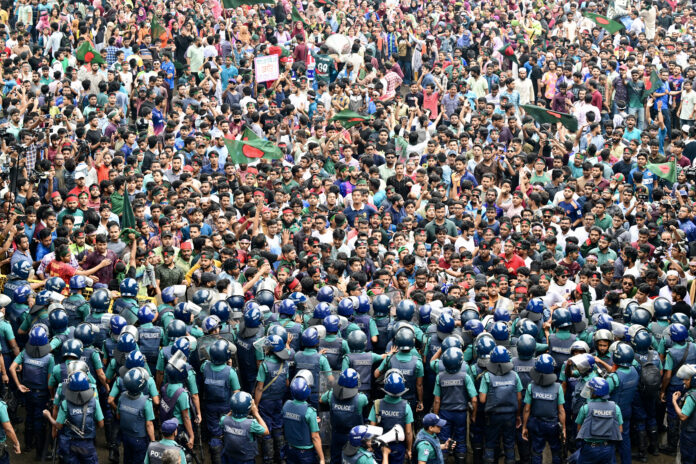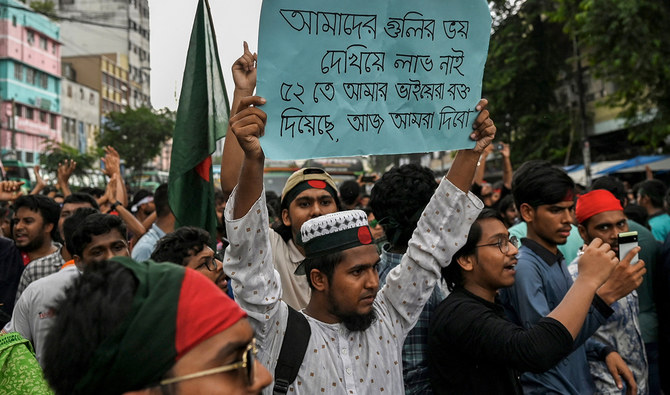Violent clashes have erupted in Bangladesh between protesters opposing government job quotas and supporters of the ruling Awami League party, resulting in at least 100 injuries. The confrontations, centered on Dhaka University’s campus, highlight growing tensions over the country’s controversial quota system for civil service positions.

The quota system, which reserves over half of coveted government jobs for specific groups, including children of independence war veterans, has come under intense scrutiny. Critics argue it unfairly benefits supporters of Prime Minister Sheikh Hasina’s government, who recently won her fourth consecutive term in a contested election boycotted by the opposition.
Despite a recent court order temporarily suspending the quotas, protesters have vowed to continue their demonstrations until the system is substantially reformed. The situation escalated when hundreds of anti-quota protesters clashed with pro-government students, resulting in hours of violence involving rocks, sticks, and even petrol bombs.

Nahid Islam, coordinator of the anti-quota protests, reported that at least 150 students were injured, including 30 women, with 20 in serious condition. Protesters claim they were peacefully demonstrating when attacked by members of the ruling party’s student wing.
Foreign Minister Hasan Mahmud accused protesters of attempting to transform the movement into an anti-state campaign, warning that the government would not tolerate instability.

The protests, which began Sunday night and continued into Monday, were partly sparked by Prime Minister Hasina’s comments comparing protesters to collaborators with the Pakistani army during the 1971 independence war. Students across multiple universities have joined the demonstrations, demanding reform of the quota system while supporting provisions for ethnic minorities and disabled individuals.
As tensions continue to rise, the situation underscores the complex interplay between Bangladesh’s political history, current governance, and the aspirations of its younger generation. The government faces increasing pressure to address the protesters’ concerns while maintaining stability in this volatile political climate.



